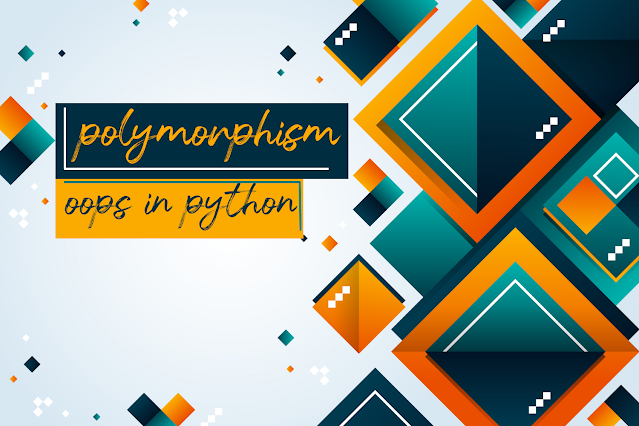- Home
- About us
- Contact us
- Sitemap
- Disclaimer
- Privacy Policy
- Terms and Condition
-
Settings
- Dark mode
Polymorphism
Polymorphism
We've learned that while functions can take in different arguments, methods belong to the objects they act on. In Python, polymorphism refers to the way in which different object classes can share the same method name, and those methods can be called from the same place even though a variety of different objects might be passed in. The best way to explain this is by example:
class Dog:
def __init__(self, name):
self.name = name
def speak(self):
return self.name+' says Woof!'
class Cat:
def __init__(self, name):
self.name = name
def speak(self):
return self.name+' says Meow!'
niko = Dog('Niko')
felix = Cat('Felix')
print(niko.speak())
print(felix.speak())OUTPUT
Niko says Woof!
Felix says Meow!Here we have a Dog class and a Cat class, and each has a .speak() method. When called, each object's .speak() method returns a result unique to the object.
There a few different ways to demonstrate polymorphism. First, with a for loop:
for pet in [niko,felix]:
print(pet.speak())OUTPUT
Niko says Woof!
Felix says Meow!Another is with functions:
def pet_speak(pet):
print(pet.speak())
pet_speak(niko)
pet_speak(felix)OUTPUT
Niko says Woof!
Felix says Meow!In both cases, we were able to pass in different object types, and we obtained object-specific results from the same mechanism.
A more common practice is to use abstract classes and inheritance. An abstract class is one that never expects to be instantiated. For example, we will never have an Animal object, only Dog and Cat objects, although Dogs and Cats are derived from Animals:
class Animal:
def __init__(self, name): # Constructor of the class
self.name = name
def speak(self): # Abstract method, defined by convention only
raise NotImplementedError("Subclass must implement abstract method")
class Dog(Animal):
def speak(self):
return self.name+' says Woof!'
class Cat(Animal):
def speak(self):
return self.name+' says Meow!'
fido = Dog('Fido')
isis = Cat('Isis')
print(fido.speak())
print(isis.speak())OUTPUT
Fido says Woof!
Isis says Meow!Real life examples of polymorphism include:
- opening different file types - different tools are needed to display Word, pdf, and Excel files
- adding different objects - the + operator performs arithmetic and concatenation

Post a Comment
Post a Comment
if you have any doubts, please let me know